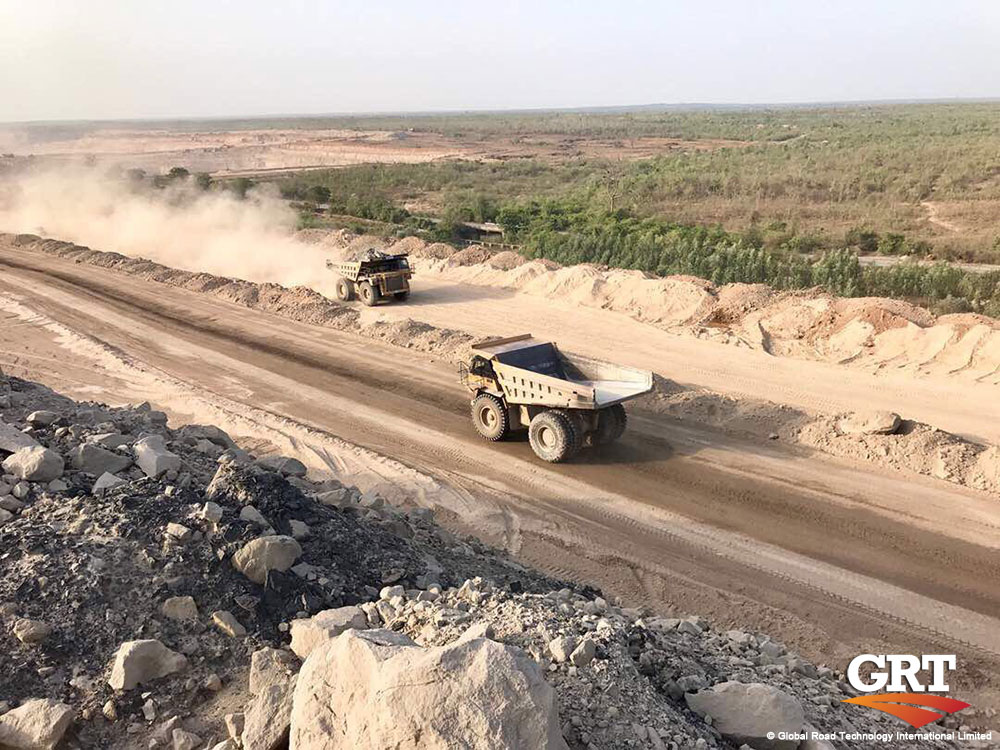
Specialists in air pollution reduction Global Road Technology (GRT) welcome the recent World Health Organisation (WHO) update around Global Air Quality Guidelines (AQGs) as it continues to implement onsite dust management strategies across Australia and New Zealand.
Demand for the company’s services is increasing as businesses working in the mining and agricultural sectors from both countries seek to address issues around air pollution with a particular focus on reducing the amount of particulate dust caused by their activities.
Outlined within the AQGs updates from the WHO are the health risks that are associated with particulate matter spread in the air equal to or smaller than 10 and 2.5 microns (µm) in diameter (PM₁₀ and PM₂.₅, respectively) and how this is highly relevant to public health
GRT is recognised as one of the leading companies across the Asia-Pacific region in the field of dust control and for General Manager Daniel Grundy these guidelines serve as a wake-up call to the mining and agriculture sectors about the dangers of air pollution.
“We have invested significant amounts into research and development to deliver dynamic dust management strategies for our clients to directly address the dangers caused by particulate air pollution – which is why we welcome reports like the AQGs from the WHO that validate this approach,” Mr Grundy said.
“Before the legislative environment changed and community pressure started being raised over the past five years on sectors causing air pollution, GRT was already at the forefront with our focus on resolving the issue of dust spread at its very source. From our end, it is good to see bodies such as the WHO put the spotlight on the issue as it further raises public awareness on just how deadly particulate dust pollution is and the threat it poses to workers and communities alike”
Within the new WHO AQG’s management of particulate matter is paid particular attention to with certain types of particulate matter (for example, black carbon/elemental carbon, ultrafine particles, particles originating from sand and dust storms) identified as problematic as there is currently insufficient quantitative evidence to set air quality guideline levels – so management strategies are made the core focus.
These particulate dust management strategies are applicable to both outdoor and indoor environments globally and cover all settings.
This is of relevance for GRT as it can be seen as validation of their entire product development and services approach that places whole-of-site dust management planning at the forefront of its offering.
An example of this is how GRT developed a two-pronged attack on the hazardous, respirable dust generated from drill and blast activities, with the service offering named the GRT Drill and Blast Dust Control process to meet the requirements of mining clients.
This includes products under the GRT: 12X brand that targets the dust generated by drilling for blasting and exploration, along with its GRT: DC Binder, which prevents hazardous airborne dust from being generated from the piles of fine Drill Cuttings (DC) by creating a tough surface crust that binds the hazardous dust particles in place.
Additional products include a range of innovative, non-toxic chemical additives –GRT: Enviro-Binder, GRT: Soil-Loc, GRT: Rubble-Loc, GRT: Haul-Loc, GRT: Activate UG, GRT: Ore-Loc, and GRT: Wet-Loc designed specifically for managing soil and preventing its loss from the site either via wind or water erosion, traffic degradation, farming practices or bulk earthworks associated with mining and civil construction.
Within Australia, the company is working extensively with some of the country’s largest mining and civil companies, while in New Zealand it has partnered with the country’s leading agricultural enterprise, PGG Wrightson.
Its partnership with PGG Wrightson sees it supply the agribusiness with its innovative range of environmentally friendly, non-toxic products including the GRT: Enviro-Binder, GRT: Wet-Loc, GRT: Rubble-Loc among others that are designed specifically for dust and erosion control – a critical factor given the country’s environmental conditions and demanding landscape.
For Daniel Grundy, it is the combination of GRT’s products, expertise, and knowledge base developed from over a decade of working to reduce air pollution that sees it well placed to provide industry leadership in this space.
“Our ultimate goal is to reduce dust as a worksite hazard via addressing the issues that cause its spread in the first place,” Mr Grundy said.
“It is validating for us as a business from an advocacy standpoint that the issue of particulate pollution is now of global importance and recognised as a major public health issue. Our work across Australia and New Zealand sees us applying a best practice approach to managing dust as a hazard making us one of the few companies that create solutions that address the issue in a manner to ensure that workers, communities, nearby farmers, and the environment aren’t negatively impacted by mining activity.”
Are environmental regulations, health and safety concerns or potential profit loss a concern right now?
Contact Us Now